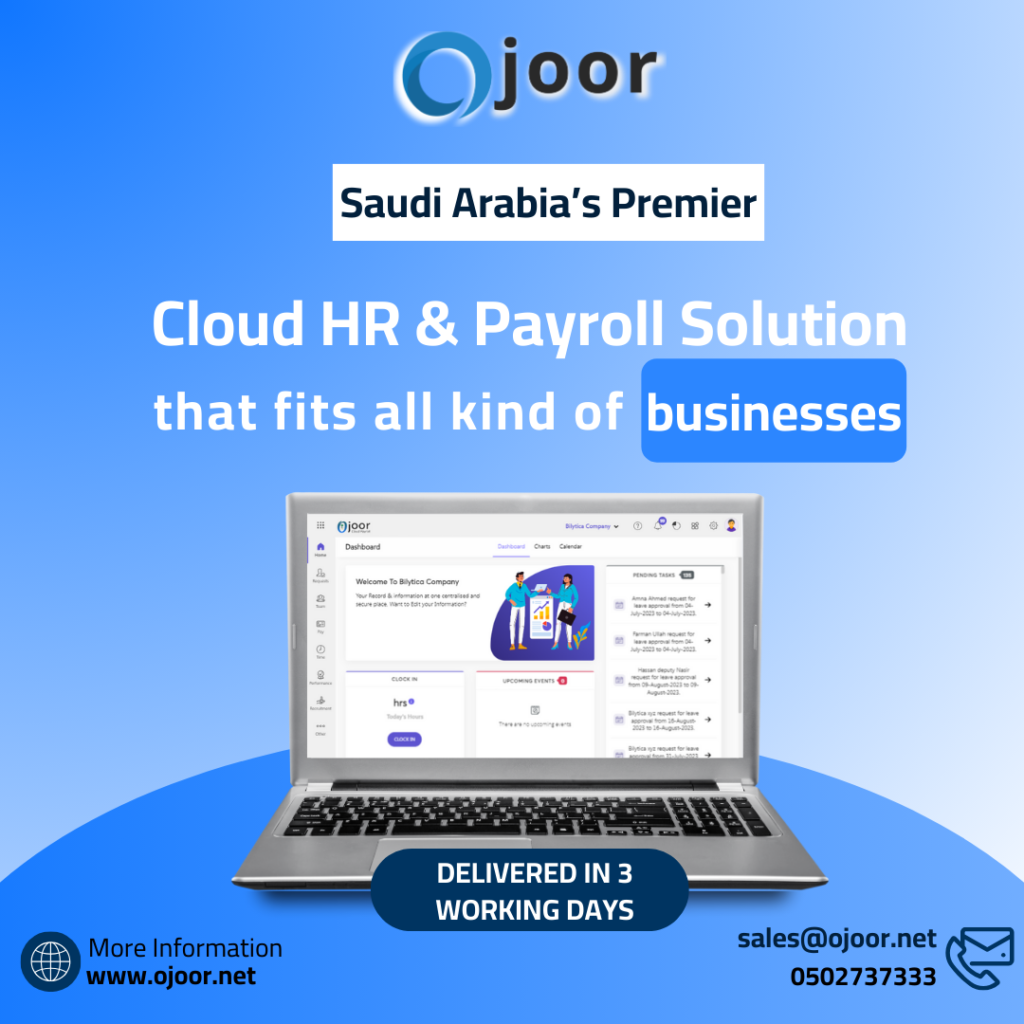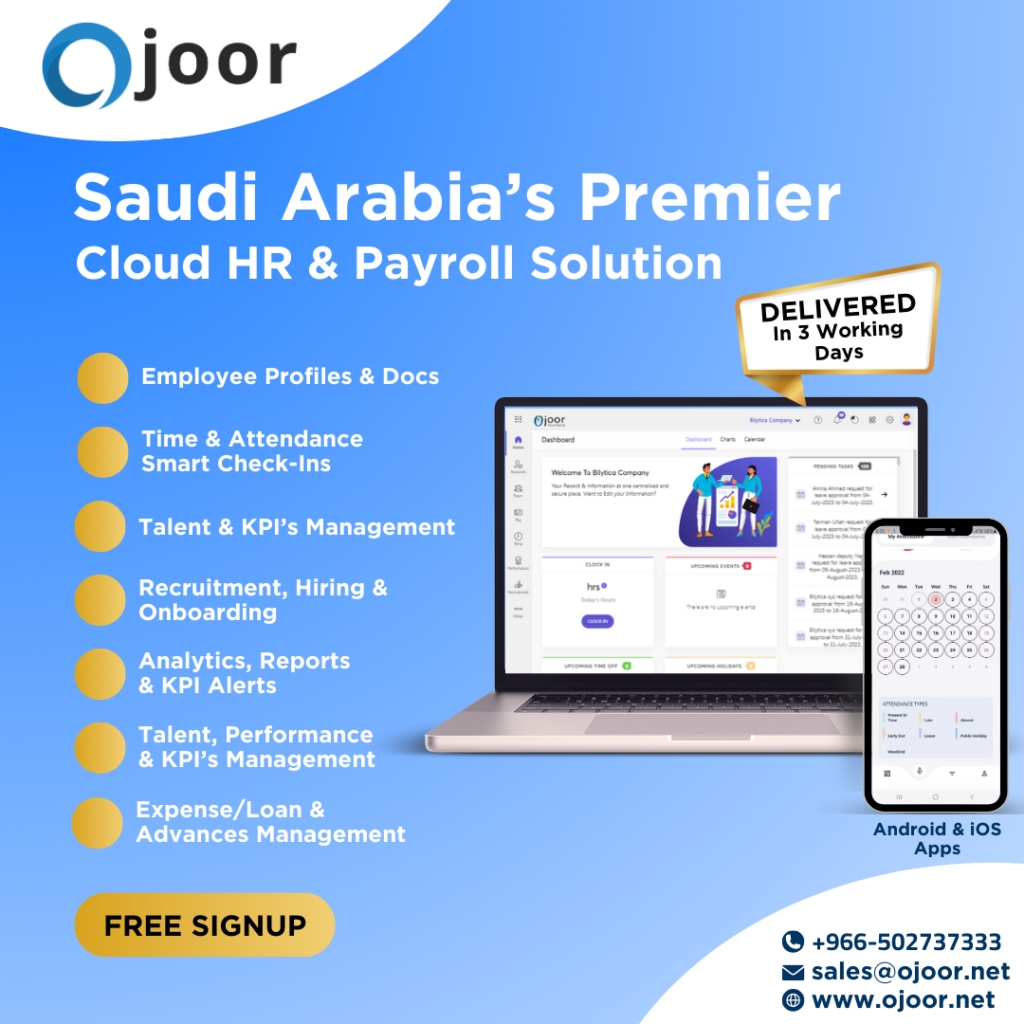Ojoor # 1 is one of the top Human Resources Policies that significantly impact job satisfaction, employee retention, and organizational success. Effective HR policies ensure that these aspects are managed fairly, transparently, and in compliance with legal requirements. This article explores how HR policies manage employee benefits and compensation, covering key areas such as structuring compensation packages, ensuring compliance, administering benefits, and addressing equity and fairness.
Click to Start Whatsapp Chatbot with Sales
Mobile: +966547315697
Email: sales@Ojoor.net
Ojoor #1 Human Resources Policies

Structuring Compensation Packages
Job Analysis and Evaluation
Human Resources Policies typically begin with a thorough job analysis to understand the responsibilities, skills, and qualifications required for each role. Job evaluation methods such as point-factor systems, ranking, and classification are used to determine the relative value of different positions within the organization. This helps in creating a structured compensation framework.
Market Research
To remain competitive, HR policies mandate regular market research to benchmark compensation against industry standards. Surveys and compensation studies provide insights into prevailing wage rates, allowing organizations to adjust their pay structures accordingly.
Pay Grades and Bands
HR policies often establish pay grades or bands that group similar positions together based on their value to the organization. Each pay grade has a defined salary range, providing a clear framework for compensation decisions and career progression.
Incentive Plans
To motivate and reward high performance, HR policies include various incentive plans such as bonuses, commissions, and profit-sharing schemes. These plans are aligned with organizational goals and designed to drive desired behaviors and outcomes.
Ensuring Legal Compliance
Minimum Wage Laws
HR policies ensure compliance with minimum wage laws set by local, state, and federal governments. This involves regularly reviewing and updating wage rates to meet or exceed legal requirements.
Overtime Regulations
HR policies outline procedures for calculating and compensating overtime. This includes tracking hours worked, ensuring eligible employees receive overtime pay, and maintaining accurate records.
Equal Pay and Non-Discrimination
Human Resources Policies enforce compliance with equal pay laws and non-discrimination statutes. This includes conducting regular pay equity audits to identify and address disparities based on gender, race, or other protected characteristics.
Benefits Compliance
HR policies ensure that employee benefits such as health insurance, retirement plans, and leave entitlements comply with legal requirements. This involves staying updated on changes in legislation and adjusting benefit plans accordingly.

Administering Benefits
Health and Wellness Programs
Leave Management System includes comprehensive health and wellness programs that provide medical, dental, and vision coverage. These policies detail the eligibility criteria, enrollment procedures, and coverage options available to employees.
Retirement Plans
HR policies manage retirement plans such as 401(k)s or pensions, outlining contribution rates, employer matching, and vesting schedules. Employees receive guidance on how to enroll, manage their accounts, and plan for retirement.
Paid Time Off (PTO)
HR policies define the allocation and administration of paid time off, including vacation days, sick leave, and personal days. Policies specify accrual rates, carryover limits, and procedures for requesting and approving time off.
Flexible Work Arrangements
HR policies may include provisions for flexible work arrangements such as telecommuting, flexible hours, and compressed workweeks. These arrangements support work-life balance and enhance employee satisfaction.
Employee Assistance Programs
HR policies often include EAPs that provide confidential counseling and support services for employees dealing with personal or work-related issues. EAPs help employees manage stress, improve mental health, and maintain productivity.
Addressing Equity and Fairness
Transparent Communication
HR policies emphasize transparent communication about compensation and benefits. Employees receive clear information about their pay, benefits, and the criteria used for determining compensation levels.
Performance-Based Pay
To ensure fairness, HR policies link compensation to performance through structured performance appraisal systems. Employees are evaluated based on predefined criteria, and pay increases or bonuses are awarded based on their contributions and achievements.
Grievance Procedures
HRMS in Saudi Arabia establishes grievance procedures for employees to raise concerns about compensation or benefits. These procedures provide a formal mechanism for addressing issues and ensuring fair resolution.
Pay Equity Audits
Regular pay equity audits are conducted to identify and rectify any disparities in compensation. HR policies outline the process for conducting these audits and taking corrective actions to ensure equal pay for equal work.
Managing Total Rewards
Total Rewards Strategy
HR policies encompass a total rewards strategy that includes not only direct compensation but also benefits, recognition programs, career development opportunities, and work-life balance initiatives. This holistic approach enhances the overall employee value proposition.
Recognition and Rewards Programs
HR policies define recognition and rewards programs that acknowledge and celebrate employee achievements. These programs may include employee of the month awards, service milestones, and peer recognition initiatives.
Career Development and Training
HR policies support career development and training opportunities, encouraging employees to enhance their skills and advance their careers. This may include tuition reimbursement, professional development courses, and leadership training programs.
Implementing Technology
HRIS and Payroll Systems
HR policies leverage technology such as Human Resource Information Systems (HRIS) and payroll software to streamline the management of compensation and benefits. These systems automate processes, ensure accuracy, and provide real-time access to information.
Self-Service Portals
HR policies may include self-service portals that allow employees to access their compensation and benefits information, update personal details, and manage their benefits enrollments online. This enhances transparency and empowers employees.
Data Security and Privacy
HR policies ensure that employee data is protected through robust data security measures. This includes encrypting sensitive information, restricting access to authorized personnel, and complying with data protection regulations.
Conclusion
HR policies play a vital role in managing employee benefits and compensation by providing a structured framework that ensures fairness, transparency, and compliance with legal requirements. Through comprehensive training programs, regular risk assessments, and clear communication, HR policies create a safe and equitable work environment. By leveraging technology and implementing total rewards strategies, organizations can enhance employee satisfaction, retention, and overall organizational performance.
In essence, well-crafted HR policies not only safeguard the interests of employees but also contribute to the strategic goals of the organization. Regular reviews and updates of these policies ensure they remain relevant and effective in addressing the evolving needs of the workforce and the business. Through these measures, HR policies help build a culture of trust, engagement, and mutual respect, fostering a positive and productive work environment.
Click to Start Whatsapp Chatbot with Sales
Mobile: +966547315697
Email: sales@Ojoor.net
Human Resources Policies
Human Resources Policies
Human Resources Policies
How Human Resources Policies manage employee benefits? similar software solutions prices were updated on 2026-02-09T00:06:23+00:00 in Saudi Arabia in Mecca, Medina, Riyadh, Khamis Mushait, Yanbu, Jeddah, Dammam, Unaizah, Uqair, Ha’il, Ta if, Al Bahah, Dhahran, King Abdullah Economic City, Najran, Diriyah, Qatif, Khafji, Jubail, Abqaiq, List of Cities and Towns in Saudi Arabia, Ras Tanura, Turubah, Jazan Economic City, Knowledge Economic City, Medina, Khobar, Abha, Tabuk, Saudi Arabia, similar software solutions prices were updated on 2026-02-09T00:06:23+00:00 We also provide in Saudi Arabia services solutions company in Hafar Al-Batin, Udhailiyah, Al-Awamiyah, Hofuf, Hautat Sudair, Buraidah, Tayma, Duba, ‘uyayna, Saihat, Al-Kharj, Al-ula, Jizan, Rumailah, Ar Rass, Arar, Shaybah, Al Majma’ah, Rabigh, Dhurma, Haradh, List of Saudi Cities by Gdp Per Capita, Badr, Sudair Industrial City, Baljurashi, Shaqraa, Al-Khutt, Habala, Ad Dawadimi, Dawadmi, Layla, similar software solutions prices were updated on 2026-02-09T00:06:23+00:00 Price is SAR 100 and this was updated on updated on 2026-02-09T00:06:23+00:00 similar How Human Resources Policies manage employee benefits? software solutions prices were updated on 2026-02-09T00:06:23+00:00 in Saudi Arabia in Haql, Afif, Al-Abwa, Farasan, Al-Jaroudiya, Thadig, Al-Thuqbah, Al Wajh, Almardmah, Al-Zilfi, Muzahmiyya, Prince Abdul Aziz Bin Mousaed Economic City, Tharmada’a, Skaka, Um Al-Sahek, Sharurah, Tanomah, Bisha, Dahaban, Al Qunfudhah, Qurayyat, Saudi Arabia, Ha’ir, as Sulayyil, Al Lith, Turaif, Al-Gway’iyyah, Samtah, Wadi Ad-Dawasir, Az Zaimah, Safwa City, Jalajil, Harmah, Mastoorah, Hotat Bani Tamim, Jabal Umm Al Ru’us, Rafha, Qaisumah, Al-Ghat, Hajrah, Al-Hareeq. Excerpt: Jeddah (also spelled Jiddah, Jidda, or Jedda; Arabic: Jidda) is a Saudi Arabian city located on the coast of the Red Sea and is the major urban center of western Saudi Arabia similar software solutions prices were updated on 2026-02-09T00:06:23+00:00 Price is SAR 100 and this was updated on updated on 2026-02-09T00:06:23+00:00
21-5-2024



